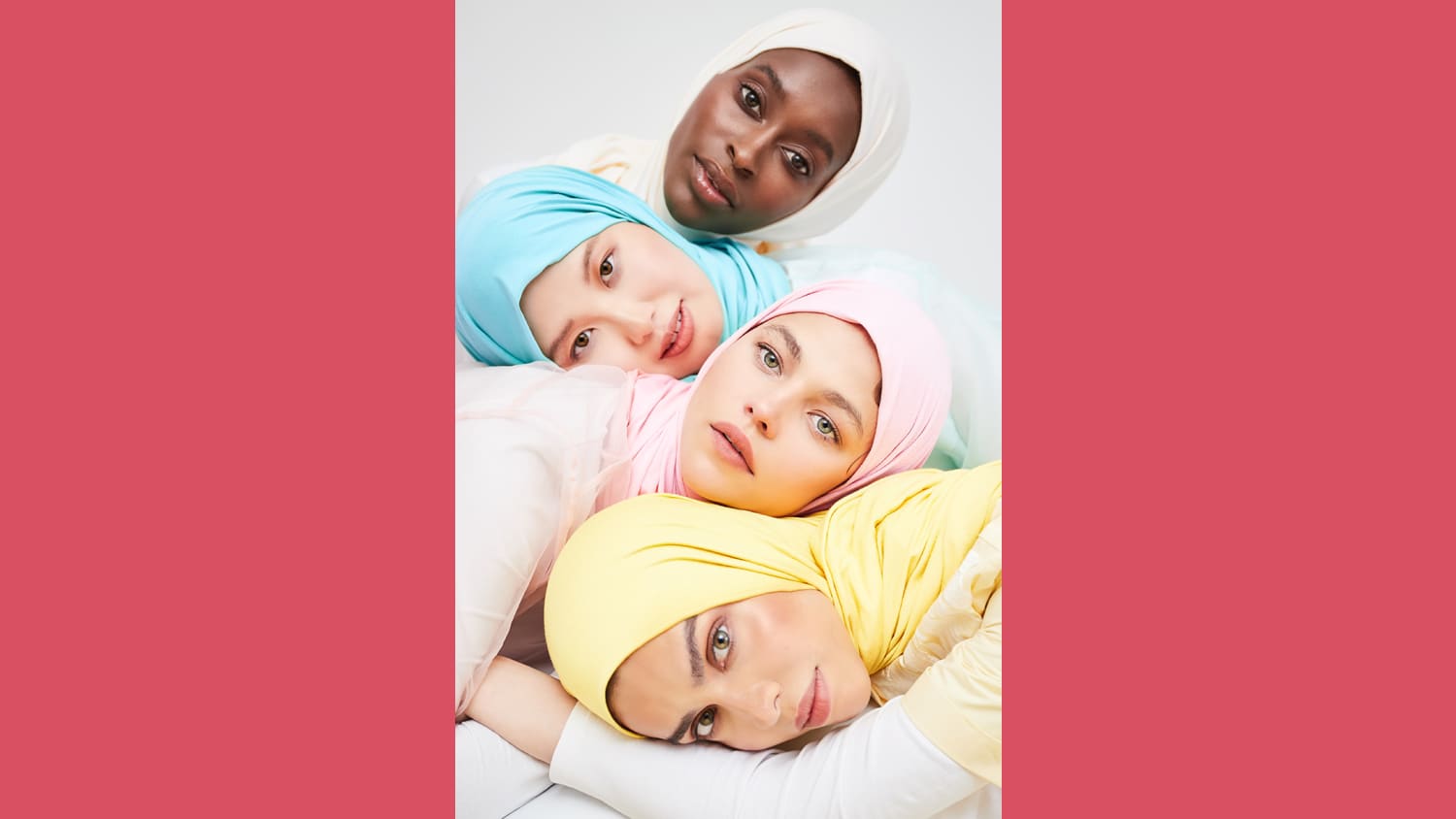Modest fashion—a style first made popular by Muslims and Orthodox Jews which grew to encompass a broader counter-cultural shift in dressing to embrace coverage—has boomed in the past ten years, fueled by young designers and influencers on social media. Now a handful of Muslim modest fashion brands are embracing what they see as another tenet of their faith: sustainability.
They include Haute Hijab, one of the first major hijab brands in the US that was founded in 2010 by repurposing vintage scarves as hijabs. Initially a platform for Muslim women in America to find community with one another, the brand expanded in 2020 to include sustainably produced sports and woven bamboo fiber hijabs.
Then there’s Nea Wear and Fayéna, two brands marrying slow-fashion and modest fashion that were founded mid-pandemic. Nea Wear, launched in London in early 2020, started by making hijabs from scrap fabrics from larger companies. Founder Ainara Medina sources fabrics in Europe, visiting factories and textile fairs in Turkey, Italy, and Spain to make sure working conditions and weaving practices are aligned with Nea Wear’s mission.
“Usually I work with post-consumer plastics so they’re usually made from plastic bottles recycled from the ocean and they usually give you even how many bottles are recycled per meter of fabric,” Medina tells Wunderman Thompson Intelligence. “That’s how I make sure, just asking a lot of questions, meeting people, and doing my due diligence.” Nea Wear is now expanding beyond hijabs with a collection of satin high-collared maxi dresses and wool balaclavas.
Fayéna, launched in Detroit, Michigan in November 2020, designs, sources, and sells hijabs and accessories made from ethically and sustainably made fabrics such as mulberry silks. Founders Fakhrya Alshubi and Lena Aljahim, ages 22 and 21, are the gen Z founders dedicated to educating the larger Muslim community on the need for sustainability.



